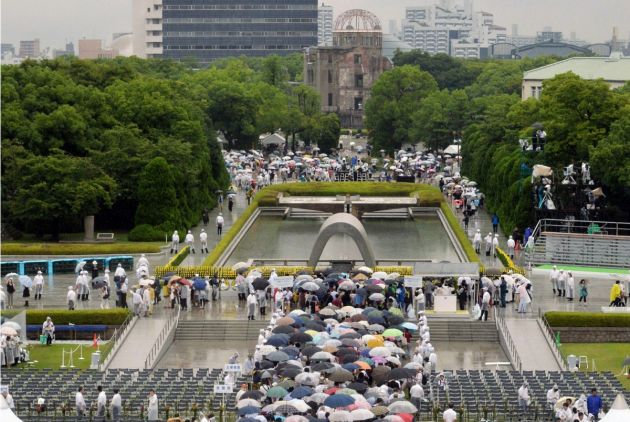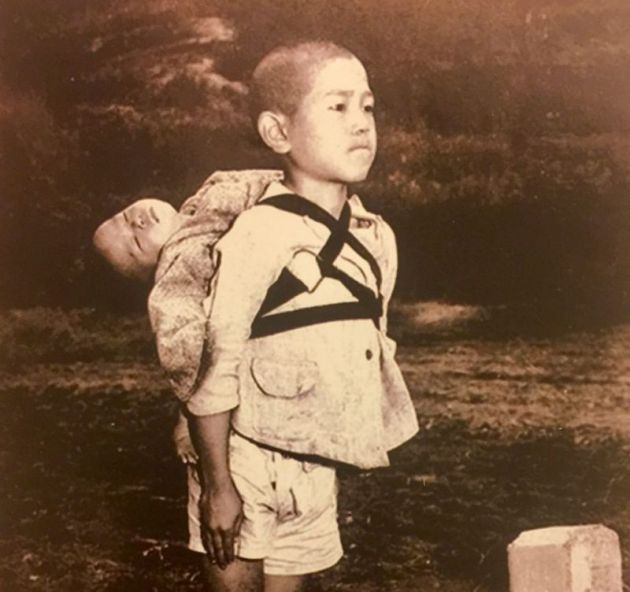In Hiroshima and Nagasaki, religious leaders hail nuclear ban treaty US shuns

Religious leaders in Hiroshima and Nagasaki are welcoming the entry into force of the Treaty on the Prohibition of Nuclear Weapons, even as Japan's Christian council "regrets" that their government has not supported or ratified the treaty.
Hiroshima was the first city to be atomic bombed in an act of war, and Nagasaki suffered a similar nuclear bombing just says later.
"We ask the government of Japan to sign the nuclear weapons ban treaty as soon as possible," the National Christian Council in Japan said in a Jan. 27 statement, saying that the treaty "collects the wisdom of humanity," and is "a major step in humanity's long walk toward hope and ideal."
Religious leaders in Hiroshima and Nagasaki expressed both a sense of encouragement and determination to move forward for a world free from nuclear weapons, the World Council of Churches reported.
The Treaty on the Prohibition of Nuclear Weapons was adopted in the summer of 2017, in hopes of bringing new momentum to the push to curb the deadliest armament in the world. But even then, it was seen more as a moral statement than an enforceable ban.
The UN Treaty on the Prohibition of Nuclear Weapons treaty outlawing nuclear weapons went into effect on Jan. 22, having been ratified by at least 50 countries, NPR reported.
The treaty was adopted in mid-2017, in hopes of bringing new momentum to the push to curb the deadliest armament in the world. But even then, it was seen more as a moral statement than an enforceable ban.
So, the ban is largely symbolic: The United States and the world's other nuclear powers have not signed the treaty.
The TPNW outlaws the creation, ownership and deployment of nuclear weapons by signatory states and places obligations on them to assist other victims of nuclear weapons use and testing.
"For the first time in history, nuclear weapons are going to be illegal in international law," Elayne Whyte, Costa Rica's former U.N. ambassador who oversaw the treaty's creation, told NPR.
Rev. Yoshitaka Tsukishita, board chair of the Hiroshima Religious Federation told the World Council of Churches, "I have been encouraged by the fact that wishes of the hibakusha have become a global public opinion and the nuclear weapons ban treaty was adopted and has come into force.
"But there is still a long way to the total ban. I hope that more countries will ratify it."
In a Jan. 22 declaration, the Hiroshima Religious Federation, a group that includes communities of Shintoism, Buddhism and Christianity, said that they "wholeheartedly welcome" the entry into force of the treaty.
They said they "pray that more countries and regions will adopt this treaty and move forward to the total abolition of nuclear weapons.
"We appeal to all people all around the world.
"We do not need nuclear weapons! Let us raise our voices together for the total abolition of nuclear weapons from the world. Let us move forward together on the road toward the total abolition of nuclear weapons," the declaration concluded.
Tsukishita, a 78-year-old atomic bomb survivor in Hiroshima and pastor of Hiroshima Tobu Church of the United Church of Christ, has shared his written testimony of suffering on 6 August 1945, when he was two years, eight months old.
"Immediately after I was watching parachutes [from the B-29 heavy bombers of the US military], the atomic bomb exploded," he wrote. "At the same time as my older brother shouted, 'Mom, the sun is falling down,' two of us were blown off by the blast."
Pope Francis expressed support for the TPNW at his weekly Vatican appearance appealing to all nations to work toward a world without nuclear weapons.

